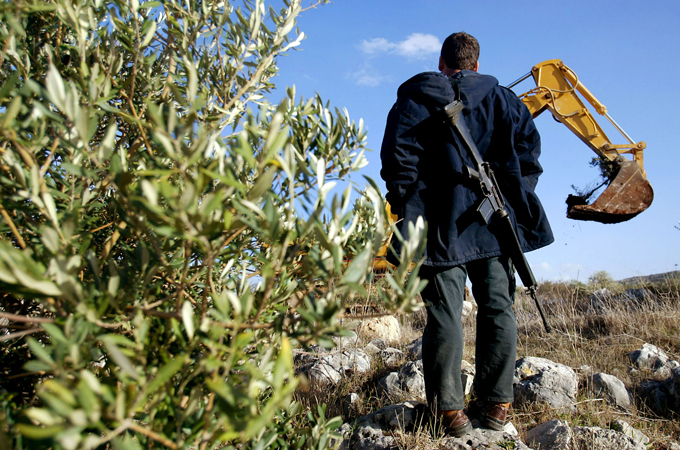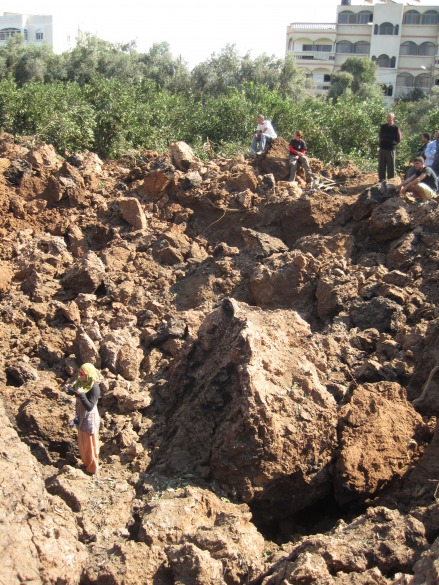-
CPT-Palestine closes At-Tuwani project
November 2, 2011 | Christian Peacemaker Team – Palestine In 2004, the village of At-Tuwani and its Israeli partner, Ta’ayush, approached CPT’s Hebron team and the Italian peace group, Operation Dove, asking if they could provide accompaniment for the children of the village whom settlers regularly attacked as they walked to school. Although CPT had […]
-
Al Jazeera: Resistance is fertile: Palestine’s eco-war
James Brownsell | Al Jazeera English After uprooting thousands of olive trees, Israel’s latest plantation may pose a fire risk to its own citizens. They come from across the planet and meet in the shadow of Israel’s 12m concrete wall. They strap olive saplings and water bottles to the back of a donkey, silent under its […]
-
Israel drops missile on North Gaza neighborhood, no one cares
Radhika Sainath | International Solidarity Movement, Gaza The Israeli Air Force fired a missile into a Beit Hanoun residential neighborhood in north Gaza early Sunday morning. The missile landed in a grove surrounded by homes, creating a crater the size of a tennis court and destroying over forty orange and olive trees. Chunks of shrapnel and […]
Action Alert An Nabi Saleh Apartheid Wall Arrests BDS Bethlehem Bil'in Cast Lead Demonstration Denial of Entry Ethnic Cleansing Farmers Gaza Global Actions Hebron House Demolition International law Israeli Army Jerusalem Live Ammunition Nablus Ni'lin Prisoner Ramallah Rubber-coated steel bullets Settlement Settlers Settler violence Tear-Gas Canister Video


